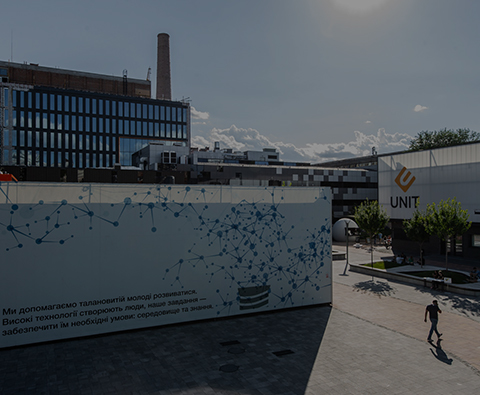SUPPORT FOR BUSINESS
The Law of Ukraine No. 1116-ІХ “On State Support for Investment Projects with Significant Investments in Ukraine” introduced an investment incentives system intended for new large-scale projects. The Law aims to encourage new significant investors into the Ukrainian market, as well as promote expansion of existing businesses.
State support for investment projects with significant investments is provided after signing a special investment agreement between the investor with significant investments and/or applicant, on the one hand, and the state of Ukraine represented by the Cabinet of Ministers of Ukraine and the local community represented by local government (if such a local community provides support), on the other hand. Such an agreement is concluded for a period of up to 15 years.
Forms of state support:
1) exemption from payment of certain taxes and fees (in force till 1 January 2035):
– VAT exemption for operations on import into the customs territory of Ukraine in the customs regime of import of new equipment and components to it;
– exemption from the profit tax (except for projects in the field of extraction for further processing and/or enrichment of minerals);
– exemption from import duty of new equipment and components to it which are imported exclusively for the implementation of an investment project with significant investments within the framework of a special investment agreement (these equipment and components are to be manufactured not earlier than three years before the date of import and should have not been in use) (in force till January 1, 2035).
2) reduced land tax and rent rates for state and communal land or exemption from land tax (except for projects in the field of extraction for further processing and/or enrichment of minerals);
3) ensuring the preemptive right to use a land plot of state or communal property for the implementation of an investment project with significant investments and to acquire ownership of the land plot after the expiration of the special investment agreement;
4) construction of engineering and transport infrastructure facilities (highways, communication lines, heat, gas, water and electricity supply facilities, utilities, etc.) or compensation for the cost of engineering and transport infrastructure facilities (highways, communication lines, heat, gas, water and electricity supply facilities, utilities, etc.) built by the applicant or investor with significant investments, which are necessary for the implementation of an investment project with significant investments;
5) compensation for cost of connection to engineering and transport infrastructure (highways, communication lines, utilities, etc.);
6) exemption from compensation for losses of forestry production
Specifics of state support:
– several investors may participate in the implementation of one investment project jointly;
– total amount of state support for the investment project may reach up to 30% of the planned amount of investments;
– upon request, the specially authorized institution provides investors with organizational and advisory assistance during the course of preparation and implementation of investment projects, as well as cooperate with public authorities, local governments on issues regarding investment projects preparation and implementation.
Requirements for investment projects:
– investment project implementation must include construction, modernization, technical and/or technological re-equipment of investment objects, purchase of necessary equipment and its complementary parts;
– at least 10 jobs with requirements for the average salary must be created in the course of investment project implementation;
– amount of investments must reach at least EUR 12 mln without VAT;
– investment project implementation period must not exceed 5 years.
Areas of investment project implementation:
– processing industry (except manufacturing and trade of tobacco products, ethyl alcohol, cognac and fruit alcohol, alcohol beverages);
– production of biogas and biomethane (including liquefied or compressed);
– extraction for the purpose of further processing and/or enrichment of natural resources (except hard coal, lignite, crude petroleum, natural gas);
– waste management;
– transportation;
– warehousing;
– postal and courier activities;
– logistics;
– education;
– R&D;
– healthcare;
– arts and culture;
– sports;
– tourism;
– hospitality;
– electronic communication.
For more information and starting application procedure please visit the following website: https://ukraineinvest.gov.ua/analytics-research/explanatory-guide/.
The Law of Ukraine No. 1667-IX “On Stimulating the Development of the Digital Economy in Ukraine” established virtual economic zone, the so-called Diia.City that combines favorable tax conditions with effective tools to allow companies to build a transparent corporate structure, attract foreign investment more easily, and use additional mechanisms to protect intangible assets.
The following incentives are available for Diia.City residents, in particular:
1) a special corporate income tax regime: a Diia.City resident may choose to pay 9% withdrawal capital tax instead of 18% corporate income tax payable on general basis;
2) 0% on the income of individuals as dividends accrued by a resident company, provided that they are paid no more than once in 2 years term;
3) tax rebate (with personal income tax) on the amount of investments in Ukrainian startups: personal income tax is paid not on the entire amount of profit, but only on the excess amount of investments;
4) a new form of cooperation between Diia.City residents and IT specialists: By working under “gig-contracts” IT specialists pay 5% PIT and are allowed to include such provisions as employees’ non-disclosure obligations, non-competition, remuneration in a foreign currency, which is currently prohibited by labor law;
5) venture investment tools: right to increase charter capital of a limited liability company via convertible loans mechanism; mechanisms of the employee stock ownership plan (ESOP); warranties and indemnities regulations, liquidated damages provisions etc.
Diia.City resident status can be obtained by a company that meets the following general requirements:
1) A company carries out, among others, one or more of the following activities, in particular:
– software development and testing, including games;
– publishing and distribution of software, including SaaS;
– teaching computer literacy, programming, testing, software technical support;
– digital marketing and advertising via software developed by Diia.City residents;
– R&D in IT and Telecom;
– cybersport;
– providing services related to the virtual assets flow etc.
2) The average monthly salary of employees and gig-specialists (in total) is not less than the equivalent of EUR 1,200 as of 1st day of each month.
3) A company employs not less than 9 employees and/or gig-specialists (in total).
4) The amount of a company’s net income and royalties received from the qualified activity (so-called “qualified income”) for the reporting period is not less than 90% of the amount of the company’s total net income for the same reporting period.
Diia.City resident status can be obtained by a startup IT company that meets the following Requirements for startups:
1) A company carries out, among others, one or more of the above-mentioned activities.
2) The amount of a company’s net income and royalties received from the qualified activity (so-called “qualified income”) for the reporting period is not less than 90% of the amount of the company’s total net income for the same reporting period.
3) The amount of annual income does not exceed UAH 9,3 million.
4) Registered no earlier than 24 months before the date of application for residence.
For more information and starting application procedure please visit the following website: https://city.diia.gov.ua/en/.
The Law of Ukraine “On Industrial Parks” provides a number of economic incentives that meet current global trends and are designed to increase direct investment in industrial parks of Ukraine and increase their competitiveness.
The following incentives are eligible to managing companies, companies-initiators and/or participants of industrial parks:
1) full or partial compensation of interest rates on loans for the purpose of arranging an industrial park, as well as for the purpose of carrying out economic activity within an industrial;
2) non-refundable financing for the purpose of arranging an industrial park and/or construction of related infrastructure facilities (highways, communication lines, heat, gas, water and electricity, utilities, etc.);
3) compensation for connecting to engineering grids (incl. compensation for connecting to the electric grid, national railway system, gas-, heat- and water supply
4) etworks);
5) 10-year CIT exemption on income of participants of industrial parks earned from their business activity within the industrial park. However, the respective CIT exemption would be applied only if the respective amount of money will be reinvested by the participant into the investment project development;
6) VAT exemption on operations of importing of new equipment (components) by the participants of industrial parks intended only for the own use of the participants of industrial parks;
7) favorable land tax rates might be granted for participants of industrial parks by decision of a local government;
8) exemption from taxation of customs duties on new equipment (components) imported by such participants for their own use only.
Activities allowed in industrial parks:
– processing industry;
– recycling of industrial and/or household waste (except for waste disposal);
– R&D;
– activities in the IT sector and telecommunications.
The Government approved the Food Security Strategy of Ukraine until 2027.
The document envisages achieving three goals:
1. Filling the food market by promoting sustainable development of agricultural production and food products:
● implementation of measures to support producers aimed at the development of agro-industrial complexes (including organic producers), which will stimulate the growth of domestic production, primarily of those products whose consumption level by the population is not sufficiently provided;
● ensuring the regime of maximum assistance in attracting investments in the agro-industrial complex of Ukraine and related industries;
● continuation of strategic partnership with the EU, the USA, Great Britain, Canada and Asian countries, overcoming challenges to global food security in Africa and Asia;
● restoration of food industry enterprises (at the community, district, regional and state levels) within the framework of the national cluster development program and regional development programs;
● application of innovative technologies for growing crops under the conditions of preserving, restoring and improving soil fertility, adherence to scientifically sound production technologies, promoting the transition to organic farming and livestock, and stimulating the production of organic food products;
● stimulating the development of market infrastructure;
● etc.
2. Ensuring economic affordability of food for all population groups in Ukraine:
● balanced supply of the domestic consumer market with the main types of products through state targeted programs for the development of the agricultural sector, programs to support agricultural producers, and other programs involving state budget funds and investment resources;
● ensuring the economic affordability of food products through the implementation of effective regulation of agricultural and food markets;
● continuous monitoring of the state of food security of the domestic market in order to apply mechanisms to prevent or reduce the impact of negative market phenomena;
● improvement of approaches to regulating agricultural and food markets aimed at ensuring their economic and physical availability, use of state regulation tools depending on changes in food security indicators;
3. Ensuring the security component of food security:
● formation of state food resources in the face of risks and threats;
● priority demining of agricultural land, including by intensifying the use of new technologies;
● implementation of measures to prevent and adapt to climate change;
● etc.








